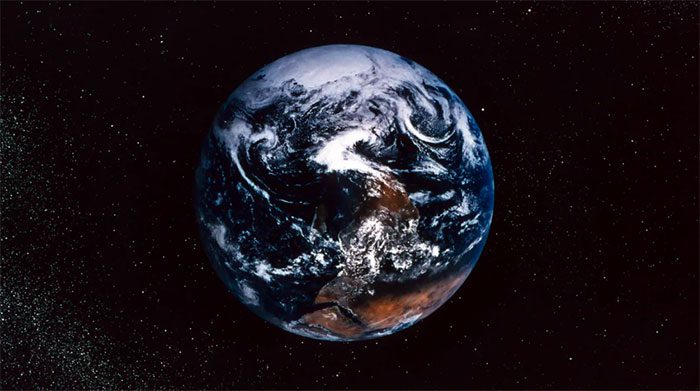Researchers forecast that in the coming years, everyone in the world will lose 1 second of their daily time allocation.
This will be precisely what happens when the melting ice phenomenon at both poles accelerates due to climate change, causing the Earth’s rotation speed to increase and altering its axis.

The Earth completing its rotation faster poses a risk of disrupting human time. (Photo: Getty Images).
The hours and minutes that define our day are determined by the Earth’s rotation. However, this rotation is not fixed; it can vary depending on what is happening on the surface and in the molten core of the Earth.
So far, humans have not noticed the changes in time that occur when the Earth rotates faster or slower because scientists have devised a method for synchronizing the Earth’s rotation with Coordinated Universal Time (UTC)—an international standard for timekeeping based on atomic methods. This method adjusts time using “leap seconds.” If the Earth rotates slower than the standard time, scientists add a positive leap second, extending the day by one second. Since the 1970s, 27 leap seconds have been added.
However, after a period of slowing down, the Earth’s rotation is now accelerating due to surface changes. For the first time, scientists will have to subtract a second instead of adding one as they did in the past.
Patrizia Tavella, a member of the International Bureau of Weights and Measures in France, wrote in a paper accompanying the study: “A negative leap second has never been added or tested, so the issues it could create are unprecedented.”
According to the National Institute of Standards and Technology (NIST) in the United States, adding or subtracting leap seconds has its pros and cons. They help ensure that astronomical observations are synchronized with clock time, but leap seconds can also cause problems for some applications and telecommunication software that operate on a second-based system.
In July 2022, a coalition of tech giants such as Meta, Microsoft, Google, and Amazon launched a campaign to eliminate the addition of leap seconds to UTC to align with the Earth’s rotation. Instead of the clock changing from 23:59:59 (11:59:59 PM) to 0:00:00 at midnight, the clock would display 23:59:60. This causes significant difficulties for computers that rely on accurate server time networks to schedule events and record activity logs. In 2012, after a leap second was added to UTC, numerous websites like Mozilla, Reddit, and LinkedIn reported outages.


















































